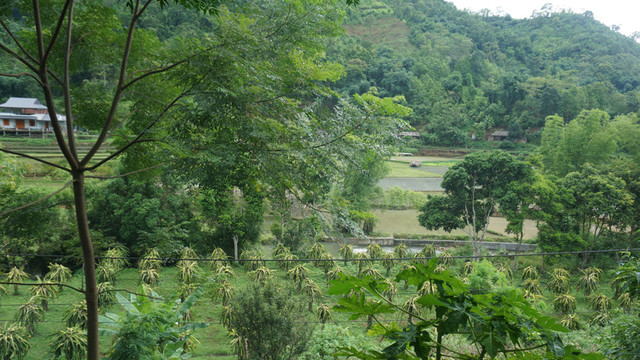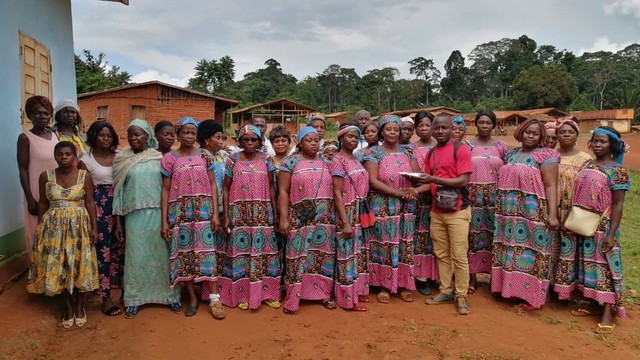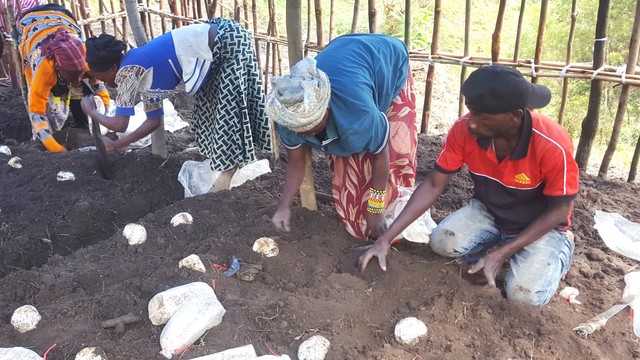International workshop on advancing rights and equity in the implementation of Target 3+
An upcoming workshop will establish a roadmap to provide support for more equitable governance and respect for rights in area-based conservation.

The Maasai of Ngorongoro, in Tanzania, oversee land (Photo: David Denicolò, via Flickr, CC BY-NC-ND 2.0 DEED)
An international workshop in Kenya aims to establish a roadmap to provide support for the delivery of more equitable governance and respect for rights in area-based conservation.
The workshop, which takes place from 31 January to 3 February in Nanyuki, will provide space for inclusive discussion to address human rights, including the application of human rights-based approaches and with particular attention to the rights of Indigenous Peoples and local communities.
The adoption of Target 3 (30x30) under the Kunming-Montreal Global Biodiversity Framework (GBF) provides an opportunity to advance understanding of how to ensure equity and to advance respect for rights in the management and governance of protected and conserved areas.
The GBF commits governments to approach conservation action (and all other actions towards stemming biodiversity loss) through a human rights-based approach, potentially transforming action in this field.
Further, important new language on ‘recognising and respecting the rights of Indigenous Peoples and local communities’ provides an opportunity to re-engage with how human rights frameworks link to conservation actions. Specific reference to recognising ‘Indigenous and traditional territories’ provides an opportunity to engage with Indigenous Peoples and community conservation in new ways.
IIED associate Barbara Lassen said: “These opportunities are real and exciting. However, where action does not align with these commitments, the expansion of area-based conservation to achieve; 30x30’ risks further negative impacts on the rights and wellbeing of Indigenous Peoples and local communities.
“This includes their rights to territories, lands and resources, if implementation does not comply with both the ‘equitably governed’ and ‘recognising and respecting rights’ language in Target 3.”
What needs to change and how
Specific guidance and tools on promoting equitable governance and respect for rights is already available, but generating a clearer understanding of what needs to change and how to do so at scale in the context of Target 3 requires specific attention.
It is also important to understand Target 3 in the context of the wider GBF, including commitments in the framework to a human rights-based approach, as well as how other targets contribute to equity in area-based conservation; namely target 19 on financing, 22 on participation, information and justice, and 23 on gender equality.
The rights and equity workshop will focus on the following key topics:
- Generating a shared understanding of equitable governance and respect for rights in the context of Target 3 and scoping out strategies to deliver on these at scale
- Recognising how Indigenous and traditional territories can support or link to recognising rights and achieving greater equity, and
- Applying a human rights-based approach), as called for in the GBF.
The workshop will aim to produce:
- A roadmap for addressing identified needs and gaps to improving equity and strengthen respect for rights in area-based conservation
- An updated framework for understanding the constituent elements of ‘equitable governance’ across different protected and conserved area types, and
- A guidance paper on applying a human-rights based approach to area-based conservation.
Lassen added: "It is the right moment to hold an inclusive discussion on rights and equity in the management and governance of protected and conserved areas. Such a dialogue needs to fully engage Indigenous Peoples and local communities."
The workshop will be co-convened by the Specialist Group on Governance, Equity and Rights in IUCN World Commission on Protected Areas (IUCN WCPA), the IUCN Commission on Environmental, Economic and Social Policy (IUCN CEESP), the Forest Peoples Programme, the IUCN Protected and Conserved Areas Team, IMPACT Kenya, the ICCA Consortium, the International Indigenous Forum on Biodiversity and IIED, with funding from the Gordon and Betty Moore Foundation and Arcadia Fund.
- Read more about IIED’s work on equitable governance of conserved and protected areas
- IIED also curated a series of blogs to raise the profile of locally led action on the road to and after the COP15 global biodiversity conference.
Contact
For more information, email Barbara Lassen via barbara.lassen@iied.org.


